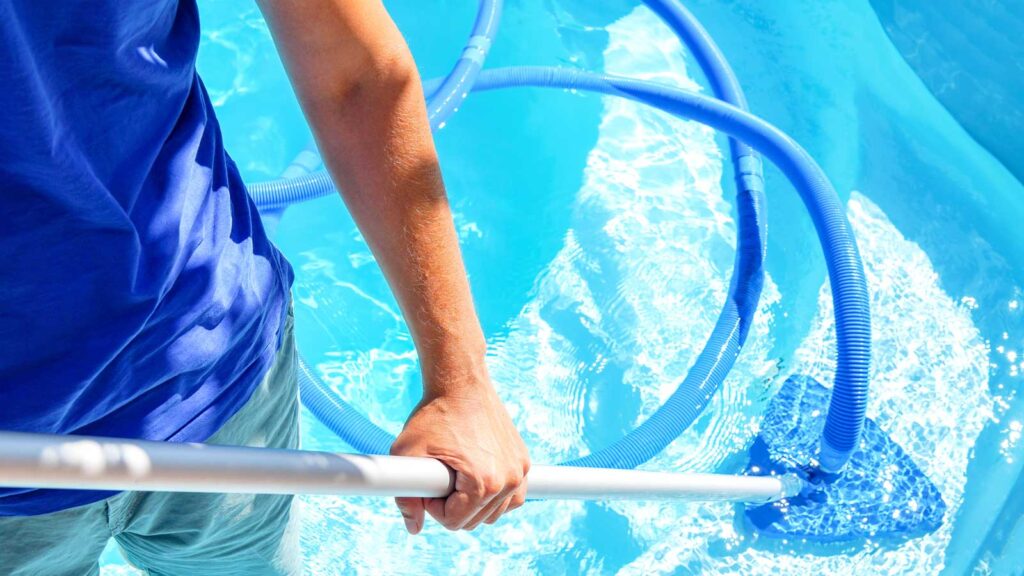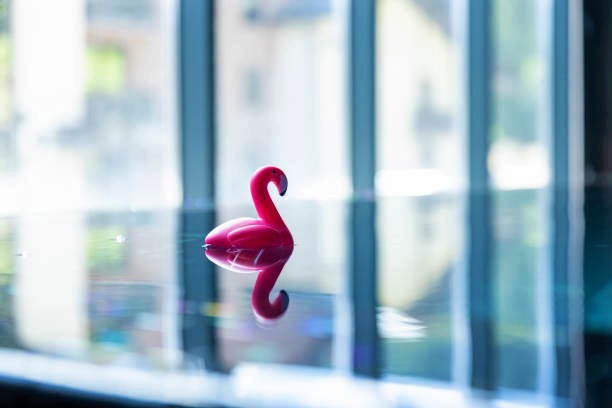How Regular Cleaning and Maintenance Can Extend Your Pool Lifespan

Having a pool in your backyard is a wonderful addition to any property. It can help cool off on hot summer days and provide endless hours of entertainment for family and friends.
However, like any other outdoor structure, it can eventually start to wear down. Thankfully, regular cleaning and maintenance can extend your pool’s lifespan.
Keep the Water Clean
Keeping the water clean is a fundamental part of pool maintenance. Dirty pools not only are unattractive but can be unsafe and unpleasant to swim in, even for the most experienced swimmers. By spending a bit of time each week cleaning your pool, you can keep it in great shape for years to come.
There are a few different ways to get the job done. You can use a natural cleaner that is mild abrasive, such as Borax (which is usually used in laundry), or you can buy a dedicated pool chemical product. Both will remove any residue or stains left behind by swimmers, such as sunscreen or lotion.
Regularly brushing your pool walls and floor is also essential, and should be done before vacuuming, to knock off any algae or tiny junk that might otherwise be sucked up by the vacuum. This will make it easier to vacuum up and can extend the life of your pool cleaner.
You should also regularly check and clean your filter. Depending on your type of filter, you may need to do this as often as once a month or as seldom as every three months. In addition to cleaning the actual filter, it is also a good idea to backwash it a few times a month, as this will partially clean the filter and help it last longer.
If you’re unsure about when to clean your filter or are not sure how to do it, consult your manual for tips and instructions. There are also a number of signs that indicate it’s time to clean your filter, including a smelly pool, clogged drain, and inefficient water circulation.
Finally, you’ll need to test the pH and chlorine levels of your water on a daily basis, especially during hot weather when they can change dramatically overnight. Using a testing kit allows you to see when the chemicals need to be adjusted.
Keeping your pool in top condition is not as hard as it sounds, and it can greatly extend its lifespan. If you’re unsure about how to do it or would prefer to leave the gunk-scooping to professionals, there are plenty of reliable cleaning companies around that will not only clean your pool but will check everything is in working order and carry out any necessary maintenance.
Check the Pump
The pool pump is the heart of the water filtration system and is responsible for filtering, cleaning, balancing, and returning clean water to the pool. It is also in charge of regulating water pressure.
When the pump begins to make loud noises, it is usually because of a worn-out or defective motor. The motor’s seal degrades and allows water to sip into the motor, creating rust that generates friction and causes loud sounds. To avoid this, the seal should be replaced.
A new pump will typically last up to six to ten years, and magnetic drive motors last twice as long as traditional ones. However, they can still wear out if not cared for properly.
If the pump is not lubricated, it will generate excessive friction and will cause damage to the bearings and other moving parts. A pool professional will recommend lubricating the motor according to manufacturer guidelines. The pool professional will also inspect the pump’s location, ensuring that there are no objects that could puncture the liner. These include branches, rocks, and other backyard items.
It is important to note that a pool pump should not be placed in direct sunlight, as this will cause the motor to overheat. In addition, a pool owner should ensure that the cover is secured using fasteners to prevent the pump from being blown away in heavy rain and wind.
Chemicals added to a swimming pool must be done so slowly that they circulate throughout the entire water body before reaching the bottom. This will avoid the chemical from accumulating in one area and causing stains. It is also a good idea to add calcium chloride to your pool water to help prevent the formation of algae and reduce the need for chemical treatments.
It is also important to keep the swimming area around the pool free from sharp objects, and a pool safety fence should be used to keep children, pets, and other unwanted swimmers out of the water. The use of a winter cover is also recommended, as it will protect the liner from fading and deterioration over the cold months.
Check the Filter
It takes a lot of time to properly clean and maintain a pool. Skimming, checking chemicals, and cleaning the filtration system all take up valuable free time that many homeowners don’t have. Instead of trying to keep up, many choose to outsource the job to professional cleaners and maintenance workers who can take care of the entire pool so that it stays healthy for all users.
Cleaning the filter is one of the most important things to do in order to extend your pool’s lifespan. It keeps the water clear and protects swimmers from dangerous bacteria that can easily irritate their eyes and skin. A dirty and unhealthy filtration system also reduces the life of other components like the pump and skimmer.
The best way to determine when the filter needs a cleaning is to monitor its pressure gauge. If it rises more than eight to ten pounds over the normal operating pressure, then it’s time to change it out. Another good sign is if the filter material looks frayed or has tears, as these may allow contaminants to pass through unfiltered.
In addition to visual inspections, it’s a good idea to occasionally use a cleaning solution on your filter cartridges. These special chemical products help break down grease, oils, and other fungi that can clog the filter material. A degreaser is available at most pool supply stores and can help extend the life of your cartridge.
Regardless of the type of filtration system you have, it is vital to follow the owner’s manual instructions carefully when cleaning it. Safety is paramount, so make sure the system is completely turned off and the release valve and restraining band are open before you begin. You’ll also need to have a bucket or large trash can handy and a pool cleaning solution, such as muriatic acid (unless your owner’s manual advises against it). Adding a small amount of this chemical to a full tank of water helps attack the hard build-up on the cartridges.
Clean the Tiles or Liner
The pool is not only a great place to cool off, have fun with the family, or invite friends over for a cookout, but it’s also an impressive feature in the backyard and often a deal-maker when selling the house. It’s worth taking the time to maintain and clean the pool so you can continue enjoying it for years to come.
Regular cleaning helps you avoid costly repairs and extends the life of your pool. It’s important to regularly skim debris from the surface of the water and vacuum the bottom. A few minutes once a week goes a long way in keeping your pool clean and safe. Baking soda paste works well as a gentle scouring cleaner that won’t damage delicate tile or vinyl liner.
Both Mother Nature and the people swimming in your pool bring all sorts of wild and wacky things into the water, including leaves, sticks, and even bird droppings. Organic matter breaks down fast in standing water, introducing bacteria and risk of disease. It’s essential to brush and vacuum the floor, walls, ladder, and stairs of your pool regularly to prevent bacterial contamination.
Aside from being a health hazard, dirty pool tiles and liners are unsightly and reduce the lifespan of your pool. The best way to keep your liners looking new is by maintaining the proper chemical balance and using recommended chlorine levels. High chlorine levels deteriorate the vinyl of a liner and can also cause structural staining.
In addition to preventing the deterioration of the vinyl, it’s a good idea to remove sharp objects from around your pool and remove plants that are prone to puncturing the liner. Pets can also pose a threat to your liner, especially if they have nails that aren’t properly trimmed.
The most important things to remember about pool maintenance are sanitization, circulation, and filtration. Without the proper amounts of each, your pool is at risk for bacteria growth, chemical imbalances, structural staining, and a host of other problems. A reliable test kit or strips can help you spot issues early on so you can correct them before they worsen.
